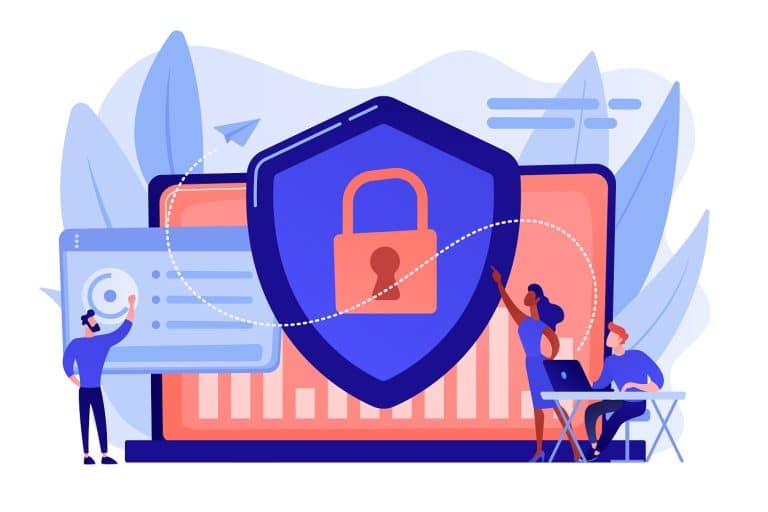With so many people starting their own online businesses, it is not always obvious how to become a successful online entrepreneur in 2023. With this article, you can equip yourself with the 11 top tips on how to successfully market and model yourself as a digital entrepreneur. Good luck!
1. Know Your “Why”
Online entrepreneurship can mean whatever you want it to. It’s precisely this level of flexibility and autonomy which attracts so many budding business owners. However, if you don’t work out “why” you want to become a successful online entrepreneur, you’ll never have a strong enough foundation to get your business off the ground. Here are some questions to ask yourself:
Do you want more control at work? Are you tired of working for other people? Do you have a great business idea you think could make lots of money? Would you like to turn your passion into paid employment? Are you unsatisfied with your current job?
Understanding your reason for becoming an online entrepreneur is key to the success of you and your business. If you don’t understand your “why”, or your reasoning is weak, how will you persevere when times get tough?
2. Develop Your Unique Business Idea
This ties into Tip #5, but is more important to consider earlier on. What is your business idea? And is it unique enough to succeed? You can have all the entrepreneurial skills in the world, but without an innovative idea, you’ve got no business. Create a mind map by writing your foundational idea in the center of a large piece of paper. Then, expand the idea with arrows coming out from the center until you’re confident that your idea is not simply a novel concept, but the basis for a winning business model.
3. Consider Training, or Furthering Your Education
Write a list of your strengths and weaknesses, in relation to your business idea. Are those weaknesses areas you could improve upon? If you’re considering starting your own online business, but don’t know how to draft a successful business plan, for example, then taking an MBA might be your key to success. If you’ve got a great eye for color, and are a natural artist, but you don’t have a working knowledge of Photoshop or InDesign, then a technical course in this software could greatly benefit you. Whatever your weak areas are, you can always improve upon them by signing up for training courses or going back to school. Remember, there are flexible and open university and college online courses for those in full-time employment.
4. Stick with Your Current Job (For Now)
It’s very easy to get excited by the idea of becoming an online entrepreneur. If you’ve drafted up your business model, made some incredible invention, or are simply sick of your day job, it’s easy to want to quit immediately. Unfortunately, however, 45% of small, startup businesses fail within the first five years. The good news is, the more prepared you are before you begin your venture into digital entrepreneurship, the more likely you and your business are to succeed. Nevertheless, it’s important not to be too hasty in leaving your day job. Small businesses don’t make much money (if any) in the first few years. If you can juggle a steady income with developing your personal brand, online business idea, and business skills, do so – for as long as you can.
5. Identify a Profitable Niche
When Mark Zuckerberg created Facebook, he identified a gap in the market. No other social media platforms did what his website did, and as a result, he has become one of the most successful internet entrepreneurs of all time. But, what if you came up with an idea similar to Facebook today? Would it be as effective? The short answer is: no. Facebook owns so much of the marketplace that its niche is no longer profitable for competitors to enter. The most important thing to consider, when planning out your online business or brand, is whether or not the niche you’ve identified is actually going to be profitable. Unfortunately, great ideas don’t always make great digital businesses, whilst very simple, niche ideas, often make the best online businesses out there.
6. Write a Business Plan, and Go!
Some successful online entrepreneurs recommend starting your business as soon as you have your first idea. Others advocate for patience and careful planning. We find that the most successful online entrepreneurs employ a mixture of both prior preparation and presumptuousness. Take time to write a business plan, and thus develop your business model. Business plans not only allow you to organize your thoughts but help potential investors to see where their return on investment (ROI) is likely to come from. More than this, they are like road maps, there to guide you on your path to fame and fortune. Use a business plan to identify your target market, set goals for yourself, and work out where the money’s going to come from. At the same time, don’t get bogged down by the planning phase. Sometimes, over-planning can delay great business ideas so long that they never get off the ground. Once you have your business plan drafted, get started down your new career path while your energy is still high!
7. Set Yourself a Schedule, and Don’t Deviate
If you’re prepared to follow Tip #4, then this tip is especially important. Developing your online entrepreneurship from a small business into a large business takes time and dedication. It is going to require commitment from you and lots of time. The best way to ensure that you’re giving your new job the time and energy it needs is to set yourself a schedule. Whether you’re able to dedicate ten hours a week, or thirty, every little bit helps. Just make sure that once you’ve decided where and when you’re going to work on your online business, you don’t deviate.
8. Work. Work. Work.
Getting a small online business off the ground is hard enough. Maintaining it and enabling it to grow into the business of your dreams is another thing. It’s going to require a lot of extremely hard work from you, and you have to be prepared for this. You will get tired, and you will question yourself, that’s only natural. This is the point at which Step One comes into play. If you identified your “why” in the beginning, then use it as motivation to keep going.
9. Sort Your Finances
Every startup requires a cash injection, and even though online entrepreneurs tend not to have the same overheads as brick-and-mortar businesses, cash flow remains equally important. Maybe you have an online product you plan to sell – you’ll need money to produce it first. Perhaps you plan to set up a blog so you can make passive income from advertising or affiliate marketing – money is required to purchase the domain and hire writers. Whatever your online venture, money will be required at the outset. Don’t be afraid to invest in yourself, if you have the means to do so. But, equally, don’t be afraid to pitch investors with venture capital. If your business model is as watertight as you think it is, investors will want a piece of the action.
10. Start Networking
The quickest and most effective way to grow any business is to make the right contacts. As the saying goes: “It’s not what you know, but who.”
Get yourself involved in online communities relevant to your specific niche. Talk to other business owners and competitors: ask them for advice, or even propose a joint-marketing initiative. Look at other online entrepreneurs’ social media accounts, to get a taste for what works, and what doesn’t. It’s through other online entrepreneurs that you’ll identify the strengths and weaknesses of your own business, develop a unique brand, and learn all you need to know to be a successful online entrepreneur.
11. Solidify Your Brand and Marketing Strategy
So you’ve identified your niche, come up with a unique idea, and sourced funding. You’re working as hard as you possibly can on a tight schedule, and you’ve started networking with other startups, and businesses small to large. What’s next? Possibly the last concrete step to take in becoming a successful online entrepreneur is to solidify your brand and implement your marketing strategy. Your brand is what makes you stand out from the crowd. Do you have a logo, a tagline, or a business manifesto? What are your brand’s colors, catchphrases, or characters? Is your brand informal and funny, or professional, with a corporate entrepreneurial mindset? Whatever you want your online brand to be, you should design it so that it becomes clear to potential clients and customers who you are, and what you do, in a unique and attractive way. Finally, it’s time to market yourself and your business. This is how you’re going to attract new clients and customers, expand your audience, and grow your revenue base. Social media is an excellent platform to market yourself on: sites like Instagram, Twitter, Facebook, LinkedIn, YouTube, Tumblr, and Reddit. You don’t have to use all of these sites, of course. Instead, you should identify your target demographics, and tailor your marketing strategy across only the platforms they use most often.
What are some successful online businesses?
A successful online business can be small – like a freelance graphic designer selling to clients – or huge – like those giants of social media: Facebook and TikTok. It’s important to remember that successful online businesses may have offline platforms, too. For example, a donut shop that only sells to customers via their Instagram account.
How many years does it take to become an online entrepreneur?
If you’re looking to establish an online tutoring service, for example, and you already have the skillset, then it may take only a few months to acquire the students you need to be a fully self-sufficient online entrepreneur. If you want to code and sell the next Google, however, then it could take several years.
Do you know an online entrepreneur who has become a millionaire starting from zero?
The obvious example is Mark Zuckerberg, who (whilst from a wealthy background) coded Facebook in his student accommodation, and is now one of the wealthiest people on Earth. However, there are plenty of others – like popular content producers/influencers on Instagram – who have made millions with just a smartphone.
Can you start an online business without a degree?
You can most definitely start an online business without a degree and be perfectly successful. However, it is no bad thing to decide to go back to school or take part in an online training course, just to sharpen up your entrepreneurial skills. In fact, doing so may benefit you exponentially in the long run. Online entrepreneurship is all about turning your dream into a reality, and your passion into pay. It’s not for everyone, but if you think it might be for you then the best thing you can do is to pay close attention to the tips we’ve listed for you in this article. Plan appropriately, identify your niche, invest in yourself, work hard, don’t deviate, and build a strong brand through networking and online marketing – do these things and you are highly likely to succeed. About






